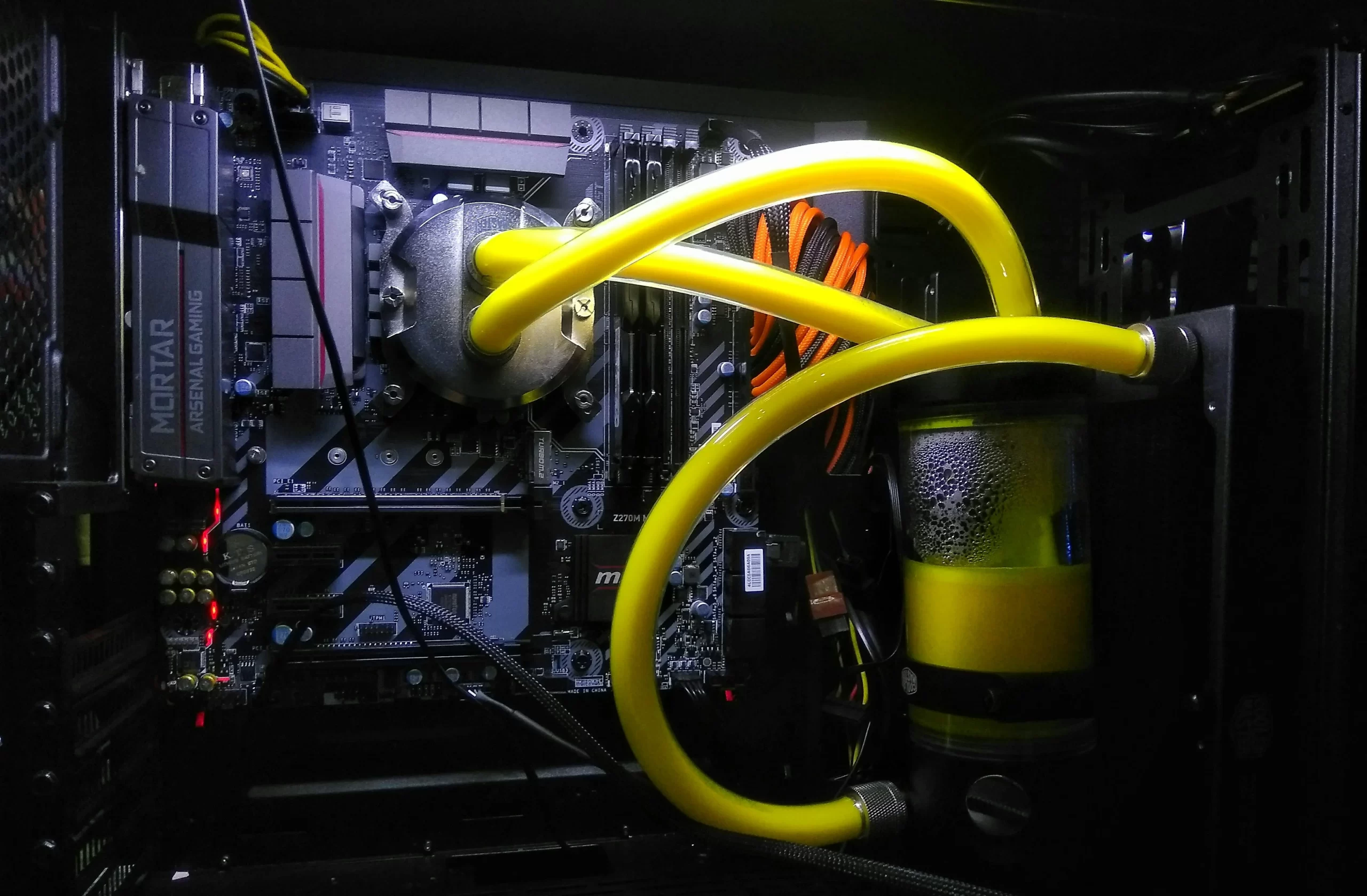Choosing the Right CPU Cooler: Air vs. Liquid Cooling
When it comes to keeping your CPU cool, there are two primary options: air cooling and liquid cooling. Both have their pros and cons, and choosing the right one depends on factors like cooling performance, noise levels, installation complexity, and budget. Let’s delve into each option to help you make an informed decision.
Air Cooling:
Pros:
1. Affordability: Air coolers are generally more budget-friendly compared to liquid cooling solutions.
2. Reliability: With fewer moving parts, air coolers are less prone to failure and leakage, making them a reliable choice.
3. Simple Installation: Installing an air cooler is straightforward and doesn’t require dealing with liquid coolant or complex tubing.
Cons:
1. Size and Clearance: Some air coolers can be bulky and may obstruct RAM slots or interfere with other components on the motherboard.
2. Limited Cooling Capacity: While high-end air coolers can provide excellent cooling performance, they may struggle to match the thermal dissipation capabilities of liquid coolers, especially in extreme overclocking scenarios.
3. Noise: Air coolers with large fans or high RPMs can produce noticeable noise levels, which may be bothersome to some users.
Liquid Cooling:
Pros:
1. Superior Cooling Performance: Liquid cooling systems, especially all-in-one (AIO) coolers and custom loops, offer superior thermal dissipation capabilities compared to air coolers, allowing for lower CPU temperatures under heavy loads.
2. Compact Design: Liquid coolers often feature a more compact design compared to bulky air coolers, making them suitable for systems with limited space or small form factors.
3. Aesthetics: Liquid cooling systems can add a sleek and futuristic aesthetic to your PC build, with customizable RGB lighting options and transparent tubing for visual appeal.
Cons:
1. Cost: Liquid cooling systems tend to be more expensive than air coolers, especially high-end AIO coolers and custom loop setups, which can involve additional costs for components like pumps, radiators, and coolant.
2. Complex Installation: Installing a liquid cooler, particularly a custom loop, requires careful planning and assembly of components like tubing, fittings, and water blocks. Improper installation can lead to leaks or performance issues.
3. Maintenance: Liquid cooling systems require regular maintenance, including monitoring coolant levels, cleaning dust and debris from radiators and fans, and checking for leaks or corrosion over time.
Conclusion:
In summary, both air cooling and liquid cooling have their advantages and disadvantages. For budget-conscious users or those seeking simplicity and reliability, air cooling may be the preferred choice. However, for enthusiasts and overclockers who prioritize maximum cooling performance and aesthetics, liquid cooling offers a compelling solution, albeit at a higher cost and with additional maintenance requirements. Ultimately, the choice between air and liquid cooling depends on your specific needs, preferences, and budget constraints.
